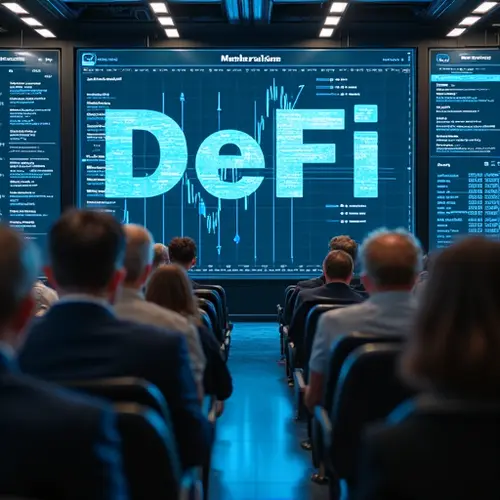New Regulatory Framework Targets Decentralized Finance
Global financial regulators are intensifying their scrutiny of decentralized finance (DeFi) platforms, with new compliance requirements set to transform how decentralized exchanges operate. The regulatory push aims to bring greater transparency and accountability to an ecosystem that has traditionally operated with minimal oversight.
Key Compliance Requirements
The new regulatory framework includes several critical components that DeFi platforms must implement:
- Enhanced Know Your Customer (KYC) procedures for users accessing trading services
- Anti-Money Laundering (AML) monitoring and reporting systems
- Transaction monitoring capabilities to detect suspicious activities
- Compliance with the Financial Action Task Force (FATF) travel rule for cross-border transactions
- Regular audits and transparency reports
Impact on DeFi Ecosystem
The compliance requirements present significant challenges for truly decentralized platforms that operate without central authorities. Many DeFi protocols rely on automated smart contracts and decentralized governance models, making traditional compliance measures difficult to implement.
Industry experts note that these regulations could fundamentally change the nature of DeFi, potentially pushing some platforms toward more centralized structures to meet regulatory demands. However, innovative solutions are emerging, including privacy-preserving compliance tools and decentralized identity verification systems.
Global Regulatory Coordination
Regulators from major financial jurisdictions, including the United States, European Union, and United Kingdom, are coordinating their approach to DeFi regulation. The coordinated effort aims to prevent regulatory arbitrage while ensuring consistent standards across borders.
The European Union's Markets in Crypto-Assets (MiCA) regulation, set to be fully implemented in 2025, includes specific provisions for decentralized platforms. Similarly, the US Securities and Exchange Commission has increased its enforcement actions against non-compliant DeFi projects.
Industry Response and Adaptation
Leading DeFi platforms are already adapting to the new regulatory landscape. Many are implementing compliance solutions that balance regulatory requirements with the decentralized ethos of the ecosystem.
Some platforms are exploring innovative approaches such as zero-knowledge proofs for privacy-preserving compliance and decentralized autonomous organization (DAO) governance models for regulatory decision-making.
The industry's response will likely shape the future of DeFi regulation and determine whether decentralized finance can maintain its core principles while meeting regulatory standards.

 Nederlands
Nederlands
 English
English
 Deutsch
Deutsch
 Français
Français
 Español
Español
 Português
Português










